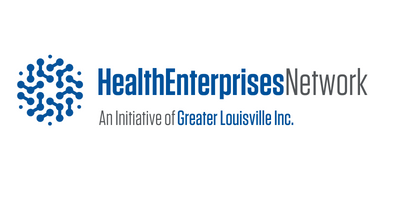The class of 2021 Healthcare Fellows met virtually in March for the second session which focused on healthcare providers (physicians and hospitals). HEN Board Chair, Tom McMahon, JD/MBA, with Circulo Health, welcomed the group and introduced Dr. Monalisa Tailor, President of Greater Louisville Medical Society.
Tailor discussed how the role of the physician has evolved over the years from physicians in independent practices with stand alone offices to physician practices being consolidated and affiliated with large health systems. Tailor said, “Because of this consolidation, physicians have to mindful of where patients are sent within the system and try to connect patients with the most appropriate specialist.”
Another evolution is how patients and other providers view physicians. Tailor said, “In 1950s physicians were esteemed, making all the decisions, in a more paternalistic model of medicine.” Tailor said that things have changed and now in medical school they teach medical students to adopt a team approach. Other healthcare providers, such as nurse practitioners, pharmacists, nurses and therapists, form a cohesive team working together to improve patient care.
The biggest trend in the business of practicing medicine is convenience. Patients can connect with a provider by using urgent care and telehealth services. Tailor shared a story about a patient who got a hair growth prescription from Good Rx for a minimal charge. “Consumers should beware of quick fixes with no coordination with a local healthcare provider. Large corporations are getting into the healthcare space such as Walmart Health and Amazon Care, which according to Tailor, might be a “gamechanger.” The relationship with the primary care provider really makes a difference and new innovations such as Walmart Health and Amazon Care diminish that relationship, according to Tailor.
After a quick break, Tom Miller, CEO of UofL Health discussed the role of hospitals. Miller said, “The role of any health system is to improve the health of every community served with every decision focused on the patient.” As for where UofL Health fits into the local healthcare ecosystem, they are a hospital first, but have transitioned in the last five years to outpatient care. Miller said, “Most of our revenues are outpatient today. Innovations in surgery helped with taking care of patients in the least invasive location.”
UofL Health has also transitioned to integrated health systems, such as med/surg, psych, home care, integrated IT, capitated payments/some global risks, some quality bonuses and health/fitness/screenings.
As for his role as CEO of the hospital, Miller said that he focuses on “delivering the best quality of patient care and having a satisfied consumer.” Other responsibilities include monitoring fiscal health and stability of the hospital, promoting quality of healthcare, finding growth, taking on appropriate risk (acquisition of KentuckyOne Health), managing regulatory changes (covid, Medicaid expansion), and pursuing innovation (minimally invasive surgery, robotics, cancer care).
The next Healthcare Fellows session, covering healthcare innovation, is scheduled for April 22.
Healthcare Fellows add “Journal Club” to program
The Healthcare Fellows have a new opportunity this year to connect with the cohort and HEN Board members in the virtual environment with the addition of a Journal Club. Sessions are led by Sean Muldoon, Vice Chair of HEN’s Member Value & Engagement Committee and Senior Vice President and Chief Medical Officer for the Hospital Division of Kindred Healthcare. These optional and informal discussions focus on sentinel healthcare articles and present an opportunity for informal discussions among the group.
During the first Journal Club, the Fellows read and discussed “Dear White Boss…” written in 2002 by Keith A. Caver and Ancella B. Livers for the Harvard Business Review. Fellows will discuss “Potential Implications of Private Equity Investments in Health Care Delivery” written in 2019 by Suhas Gondi and Zirui Song, MD for the American Medical Association.

Recent Comments